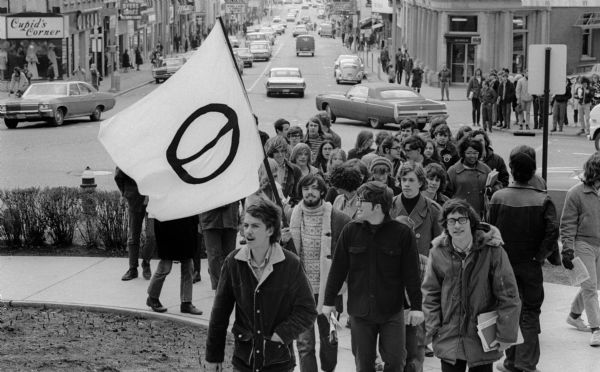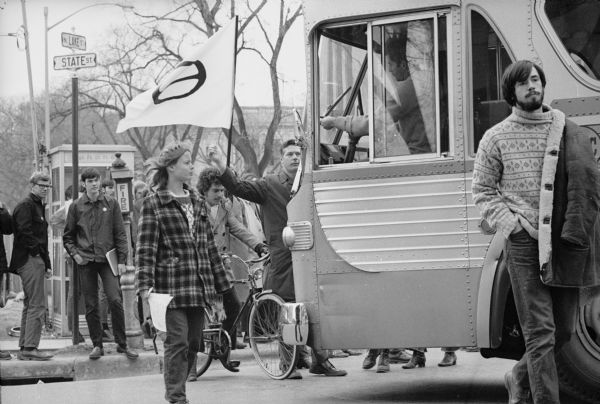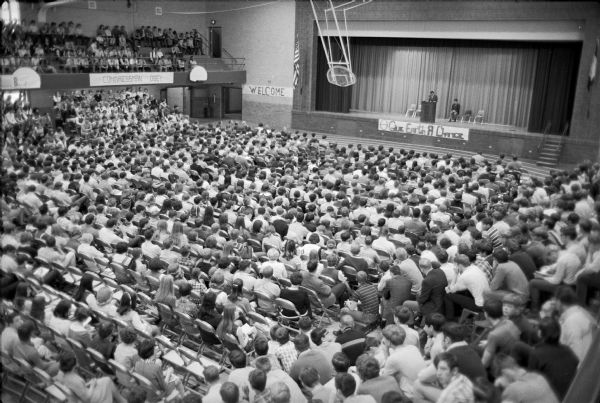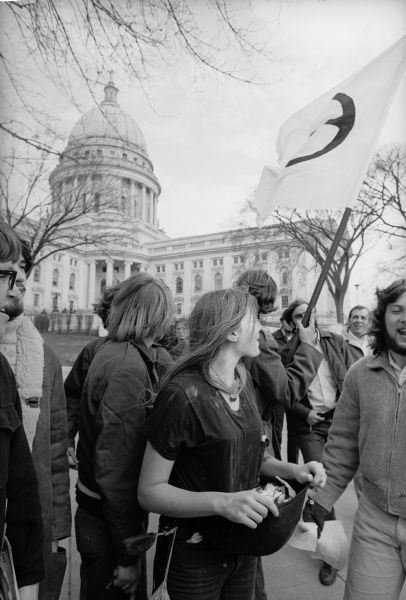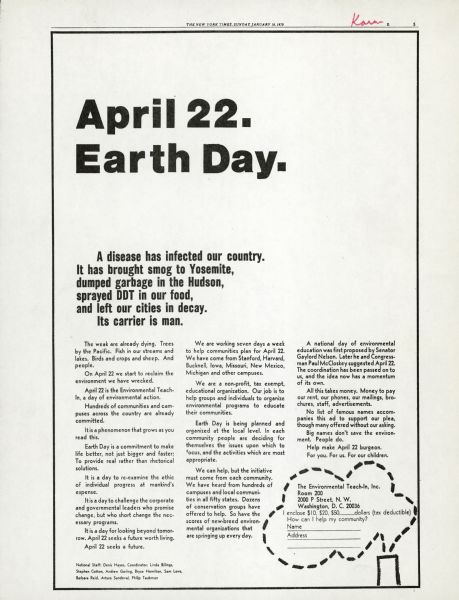Old-school cool: A look back on Earth Day
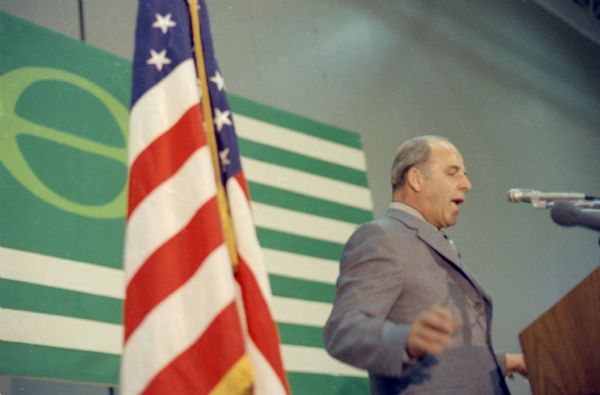
Gaylord Nelson, the inspiration for UW’s Nelson Institute for Environmental Studies, was the founder of Earth Day. Wisconsin Historical Society
On the 50th anniversary of Earth Day, perhaps it’s fitting that our planet is getting a much-needed break from the noise of everyday life.
Gaylord Nelson — the founder of Earth Day and namesake for UW-Madison’s Nelson Institute for Environmental Studies — created this grassroots mass movement in 1970, bringing national attention to the growing ecological crisis. The Wisconsin senator was a staunch advocate for conservation and environmental awareness who not only left his legacy on UW, but also across the world.
In his 1970 speech kicking off Earth Day, Nelson called on communities to come together in supporting a greener planet: “Our goal is not just an environment of clean air and water and scenic beauty. The objective is an environment of decency, quality and mutual respect for all other human beings and all other living creatures.” That sentiment continues to be relevant today as people across the nation keep each other safe through social distancing.
Though the COVID-19 pandemic has brought a halt to in-person events, UW students and faculty are still participating virtually in the Earth Day Conference and Earth Week through a mix of webinars, pre-recorded sessions and interactive discussions. The two events are an extension of Nelson’s Earth Day teach-in, which brought environmental issues into classrooms throughout the U.S.
From an ‘eco-pornography’ display in the Union to the Hoofers’ ‘ecology trip for freaks,’ the first UW Earth Week in 1970 was jam-packed with activities and lectures. Take a look back at the offerings here, which include an environmental art show, film festival and dozens of other workshops.
Wondering what Earth Day looked like for UW in 1970? Here are some old-school cool photos that flashback to the historic event.
Subscribe to Wisconsin Ideas
Want more stories of the Wisconsin Idea in action? Sign-up for our monthly e-newsletter highlighting how Badgers are taking their education and research beyond the boundaries of the classroom to improve lives.

